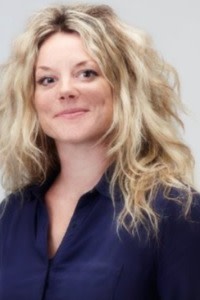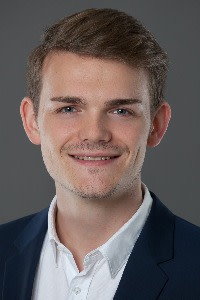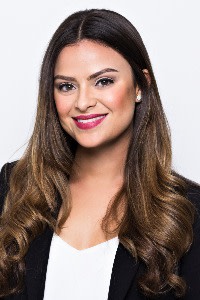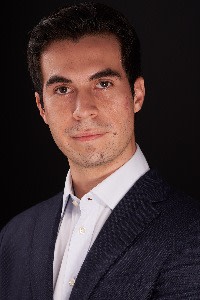What I learnt from my business masters
Roula Khalaf, Editor of the FT, selects her favourite stories in this weekly newsletter.
Vicki Harding
British. Global Executive MBA, Henley Business School, 2021. Managing partner, Iris Worldwide, London/Bath, UK

What is the most important lesson you have learnt on the course?
How important learning itself is. I cannot tell you how energised I am simply by the act of studying again. I am just finishing maternity leave: I started the course when my second child was very young (I had two children under two). During lockdown in a house with young children, studying was a life- and brain-saver. It also made me appreciate all my on-the-job experience, which I had probably taken a little for granted before. I had not appreciated how much I knew from working in a fast-paced, dynamic agency across many sectors. The Henley course also includes lots of personal development, which forces you to reflect on who you are, your life experiences, your beliefs and where you are going. Most critically, it has reconnected me with the person I was at 21, starting out in the world, full of confidence in my future — before life and societal norms could tell me what I am and am not capable of. I’m channelling that girl again, just with less of the wild side this time.
Felix Lorenzen
German. Master of Management, Kozminski University double degree programme with ESCP Business School, 2020. Consultant, Capgemini, Frankfurt, Germany

Were there any surprises?
Since I had been in employment for a while, I thought, “OK, you are pretty well informed, you know what to expect and you know what direction this ship is going in.” But then, of course, it was different. I took a course in artificial intelligence, which was inspiring. The professor challenged us to think about what we could do and what kind of business we could create with AI. We developed a project that used a deep-learning algorithm to detect football talent. Following the course, I continued with the project by myself, talking to football clubs, which showed some interest. I then pursued the project on my masters in Warsaw and Paris. The business schools pushed me further and I joined Blue Factory, a student start-up accelerator in Paris. Having developed the project further, I talked to several football club general managers, and it became quite big. This was something I hadn’t expected: I suddenly found myself running an entrepreneurial project.
Chng Yu Jean
Malaysian. MBA, ESMT Berlin, 2021. Berlin, Germany

Any survival tips for managing an MBA?
I can only speak as a parent, but when you are left without childcare you realise how important it is. This is the bit that made Covid-19 an extra challenge: all our studies had to move online, but we had no childcare. The scope of the MBA wasn’t reduced, but I had a lot less time than before. It is also important to have a supportive partner. Without my husband, I would not have accomplished what I have so far, because whenever I am doing assignments or at networking events, he is behind the scenes taking care of our daughter. The other survival tip is that everybody is different. If you always compare yourself to others, you will put yourself under a lot of stress, which could be damaging for your mental health. So always think about being a better version of yourself, rather than about what other people are doing or can do, because all of us have different resources.
Nicole Agnes Solti Girón
Guatemalan. International Master in Management, Eada Business School, 2020. Consultant, Camelot Management Consultants, Cologne, Germany

What advice would you give to prospective masters in management students?
If you can, it is really beneficial to have previous work experience as you can take greater advantage of what you will learn. I worked for three years before taking the course. I suggest doing an international MiM because you will be with people from different countries and will learn how to work in diverse teams. The international environment at Eada [in Barcelona] gave me the opportunity to get to know different cultures, languages, traditions and experiences, as well as the ability to grow my network. For those who do not have a bachelors in business or economics, this masters is also for you. I am an organisational psychologist, and combining both my academic and business disciplines has made me grow exponentially. Finally, find a programme that adds value to your dreams. My goal has always been the corporate world, so I knew that combining both organisational psychology and management disciplines would help me meet my ambitions.
Gabriel Chacon
Venezuelan. Master in Management, Essec Business School, 2021/2022. Intern, BNP Paribas, Paris, France

Why did you choose Essec?
During my time as an undergraduate at Bocconi, I met an Essec student who was on an exchange. I was impressed by his clarity about what he wanted to do after graduating and his capacity to plan ahead. I felt inspired because I was a little lost myself, so I started researching business schools and found Essec’s values were aligned with mine. The school promotes diversity and has a diversity scholarship, which I was awarded. It also focuses on the positive social and environmental impact that we as alumni can have. That was very important to me because I want to make an impact, in emerging markets in particular. The careers service at Essec has counsellors who help students plan their professional growth. They give us the tools to think about what we want to do and structure the steps we need to get there.
Comments